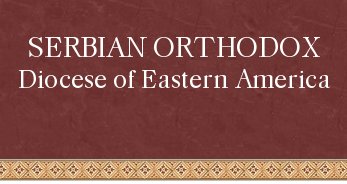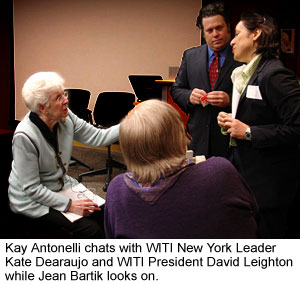Larry King (born
Lawrence Harvey Zeiger on
November 19,
1933) is an award-winning
American writer,
journalist and broadcaster. He currently hosts a nightly interview program on
CNN called
Larry King Live, one of the longest running talk shows on air.
Early life A
CBS staff announcer, who King met by chance, told him to go to
Florida where there was a growing media market and where there were openings for less experienced radio personalities. King rode a bus to Miami. After initial setbacks, King got his first job in radio through persistence. A small station,
WIOD in
Miami Beach, hired him to clean up and perform miscellaneous tasks. When one of their announcers quit, they put him on the air. His first broadcast was on
May 1,
1957, when he worked as the
disc jockey from 9 am to noon. He also did two afternoon
newscasts and a sportscast. He was paid $55 a week. He acquired the name Larry King when the general manager said that Zeiger was too ethnic and hard to remember, and instead suggested the surname
King, which he got from an ad in
The Miami Herald for King's Wholesale Liquor. He started interviewing on a midmorning show for WIOD, at Pumpernik's restaurant in Miami Beach. He would interview anyone who walked in. His first interview was with a waitress at the restaurant. Two days later, singer
Bobby Darin, in Miami for a concert later that day, walked into Pumpernick's as a result of coming across King's show on his radio; Darin became King's first celebrity interview guest.
His Miami radio show launched him to local stardom. A few years later, in
May 1960, he hosted
Miami Undercover, airing Sunday nights at 11:30 p.m. on WPST-TV channel 10 (now
WPLG). On the show he moderated debates on important issues of the time.
Miami radio In the early 1970s, he was entangled in legal and financial troubles. He was arrested on
December 20,
1971 and charged with
grand larceny. The charges stemmed from a deal he had made with
Louis Wolfson, who had been convicted of selling unregistered stock in 1968.
The circumstances are of what occurred between the two are unclear. According to King, he told Wolfson that he could arrange a special investigation by
John Mitchell, the incoming US Attorney General, to overturn the conviction. Wolfson agreed, and paid King $48,000. King never delivered, and could not pay back the money. When Wolfson was released from prison, he went after King. According to Wolfson, King served as an intermediary between Wolfson and New Orleans District Attorney
Jim Garrison. Garrison was investigating the assassination of
President Kennedy, but needed to raise funds for the investigation. Wolfson offered to pay $25,000 to help fund the investigation. The arrangement was that Wolfson gave Larry King cash (about $5,000 per visit). King was supposed to give this to Richard Gerstein, the State Attorney for Dade County, Florida. Gerstein was to transfer the money to Garrison. This took place over a year or two. Wolfson eventually found that not all the money he gave to King made it to Garrison. The larceny charge was dropped because the
statute of limitations had run out. But King pled no contest to one of 14 charges of passing bad checks. As a result of these troubles, he was off the air for three years. During those three years he worked several jobs. He was the PR director at Louisiana Downs, a race track in
Louisiana and he wrote some articles for
Esquire Magazine, including a major piece on
New York Jets quarterback
Joe Namath.
Legal and financial troubles King managed to get back into radio by becoming the
color commentator for broadcasts of the Shreveport Steamer of the World Football League on KWKH. Eventually, King was rehired by WIOD in Miami. In 1978 he went national, inheriting the nightly talk show slot on the
Mutual Radio Network, broadcast coast-to-coast, that had been
"Long John" Nebel's until his death, and had been pioneered by
Herb Jepko. One reason King got the Mutual job is because he had once been an announcer at WGMA-AM in Hollywood, Florida which was then owned by C. Edward Little. Little went on to become president of Mutual and was the one who hired King when Nebel died. King's Mutual show developed a devoted audience, paving the way for the likes of
Art Bell and King's weekend relief host
Jim Bohannon, among many, many others.
It was broadcast live Monday through Friday from Midnight to 5:30am eastern time. Larry would interview a guest for the first 90 minutes, allowing callers to continue the interview for another 90. At 3am, Larry would allow the callers to discuss any topic they pleased with him, until the end of the program, where he expressed his own political opinions. They called that segment "Open Phone America". Some of the regular callers included "The Portland Laugher", "The Todd Cruz Caller", "The Scandal Scooper", and "The Water is Warm Caller". The show was wildly successful as a loss leader, starting with relatively few affiliates and eventually growing to more than 500. It ran until 1994.
For its final year, the show was moved to afternoons but, because most talk radio stations at the time had an established policy of local origination at the time (3 to 6 P.M. Eastern Time) that Mutual offered the show, a very low percentage of King's overnight affiliates agreed to carry his daytime show and it was unable to generate the same audience size. The afternoon show was eventually given to
David Brenner and radio affiliates were given the option of carrying the audio of King's
CNN evening program. He started his
CNN show in June 1985, and the
Westwood One radio simulcast of the CNN show continues at the time of this writing.
On the
Larry King Live show, King hosts guests from a broad range of topics. This includes controversial figures of
UFO conspiracy theories and alleged
psychics. One notable guest is
Sylvia Browne, who in 2005 told
Newsweek Larry King, a believer in the paranormal, asks her to do private psychic readings.
Comeback to radio and TV On
February 27,
1987, King suffered a major
heart attack and then had quintuple-
bypass surgery. Coincidentally, this occurred the day after Larry King took over the
Don and Mike Show. It was a life-altering event. Previously smoking was one of his trademarks and he was not apologetic about this habit. King was a three-pack-a-day smoker and kept a lit cigarette during his interview so he would not have to take time to light up during breaks. He now encourages
curbing smoking to reduce the risk of
cardiovascular disease.
King has written two books about living with heart disease.
Mr. King, You're Having a Heart Attack: How a heart attack and bypass surgery changed my life (1989,
ISBN 0-440-50039-7) was written with New York's Newsday science editor, B. D. Colen.
Taking on Heart Disease : Famous Personalities Recall How They Triumphed Over the Nation's #1 Killer and How You Can, Too (2004,
ISBN 1-57954-820-2) features the experience of various celebrities with cardiovascular disease including
Peggy Fleming and
Regis Philbin.
Court TV Life As result of heart attacks, he established the Larry King Cardiac Foundation, an organization to which
David Letterman, through his
American Foundation for Courtesy and Grooming, has also contributed. King gave $1 million to
George Washington University's School of Media and Public Affairs for scholarships to students from disadvantaged backgrounds.
On
September 3,
2005, King aired, "How You Can Help," a three-hour special designed to provide a forum and information clearinghouse for viewers to understand and join nationwide and global relief efforts. This was following the devastation to the Gulf Coast by
Hurricane Katrina. Guest
Richard Simmons, a native of
New Orleans, told him, "Larry, you don't even know how much money you raised tonight. When we rebuild the city of New Orleans, we're going to name something big after you."
Community On
September 10,
1990, while on
The Joan Rivers Show, Rivers asked King which contestant in the pageant was "the ugliest." King responded, "
Miss Pennsylvania. She was one of the 10 finalists and she did a great
ventriloquist bit [...] The dummy was prettier."
On
September 23,
2004,
John Clark sued King and CNN after an interview with his ex-wife,
Lynn Redgrave, aired. Clark argued that he was defamed by the banner statements scrolling at the bottom of the screen, and that the pre-taped show did not allow him to appear to defend himself. The court would not allow the suit to proceed ruling that he was not defamed. Two years later, the
Ninth Circuit, Southern District of California, dismissed his appeal.
Controversy King has received many broadcasting awards. He won the
Peabody Award for Excellence in broadcasting for both his radio (1982) and television (1992) shows. He has also won 10
CableACE awards for Best Interviewer and for best Talk Show Series.
In 1989, King was inducted into the
Radio Hall of Fame. In 2002, the industry magazine
Talkers named King both the fourth-greatest radio talk show host of all time and the top television talk show host of all time. King was the only person to place in the top ten on both lists.
King is an honorary member of the
Rotary Club of Beverly Hills. He is also a recipient of the President's Award honoring his impact on media from the
Los Angeles Press Club in 2006.
King is the first recipient of the Arizona State University
Hugh Downs Award for Communication Excellence, presented April 11, 2007, via satellite by Downs himself.
Downs, the highly respected broadcaster and TV host, sported red suspenders for the event and turned the tables on King by asking "very tough questions" about King's best, worst, most emotional and most influential interviews during King's 50 years in broadcasting. The award is sponsored by the
Hugh Downs School of Human Communication at
Arizona State University.  Awards
Awards King has been married seven times, to six different women.
Family Shawn Southwick, present wife
- Married September 5, 1997 in Jewish-Mormon inter-faith ceremony.
- Son, Chance Armstrong King (b. March 9, 1999)
Son, Cannon Edward King (b. May 22, 2000)
Step-son, Danny Southwick (b. 1981)
Julie Alexander
- Marriage dates, 7 October 1989 - 1992 (divorced)
Sued for slander, case settled in 1994
Sharon Lepore
- Marriage dates, 1976 - 1984 (divorced)
Alene Akins, former Playboy bunny
- Second marriage dates, 1967 - 1972 (divorced)
- Daughter, Chaia (b. 1967)
First marriage dates, 1961 - 1963 (divorced)
- Adopted son, Andy King (from Akins' first marriage)
Mickey Sutphin
- Marriage dates, 1963 - 1967 (divorced)
- Daughter, Kelly (Adopted by Sutphin's next husband)
- Currently estranged from King
Frada Miller (married right after high school graduation)
- Marriage dates, 1952 - ? (annulled)
 Wives (reverse chronological order):
Wives (reverse chronological order):
Angie Dickinson (c. 1983 to c. 1988)
Deanna Lund (1996-?)
- Engagement announced
Rama Fox (1992-1995)
- Engagement announced
Legal dispute over financial matters Other children
The section could be improved by integrating relevant items into the main text and removing inappropriate items.
In a 2006 interview, Larry King mistakenly referred to Andre Agassi as Pancho Gonzales.
For a period of time Alan Kalter's "Secret Word" on the Late Show with David Letterman was said to be "sponsored" by Larry King. The sponsorship was announced by stating "Larry King - he looks like an owl."
 Historical background
Historical background Basis of a common concept of the two religions
Basis of a common concept of the two religions

 Event
Event Aftermath
Aftermath History
History Diet
Diet Early life
Early life Political ascendancy
Political ascendancy Travels
Travels History
History Meteorologists
Meteorologists



 Copyright status and availability
Copyright status and availability Awards
Awards Wives (reverse chronological order):
Wives (reverse chronological order):